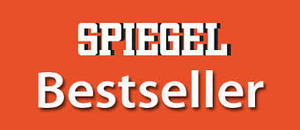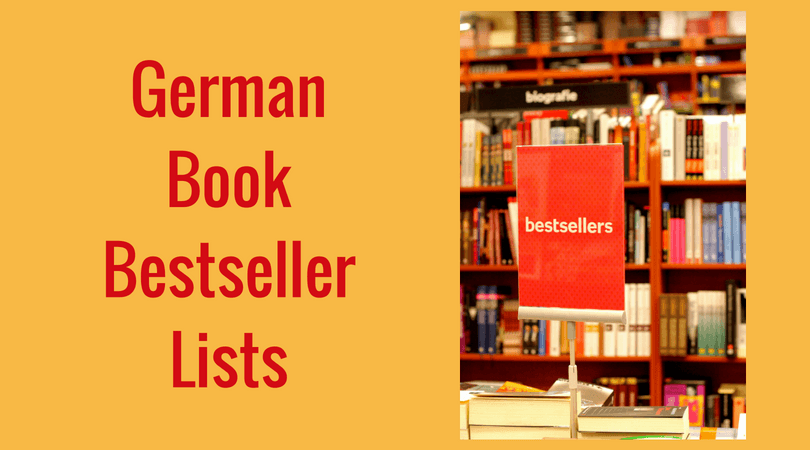Book Bestseller Lists in Germany
If you are a USA Today or New York Times bestselling author, you probably state that on the cover of your book, or at least in the blurb. Publishing houses in Germany do the same when they acquire books from bestselling authors in English. The fact that a book has been a bestseller in its native market alone is worth mentioning.This made me wonder which German bestseller lists exist and by which criteria books are chosen for them.
 The SPIEGEL bestseller list is probably the best known in Germany. DER SPIEGEL, a news magazine based in Hamburg, first published book bestseller lists in 1961. Their list is based on book sales recorded electronically by the book sellers (currently more than 4200, including physical and online book stores as well as department stores). The list is updated daily and sorted by categories (fiction, nonfiction, children’s and Young Adult, etc.), and book types (hardcover, paperback, audiobook – no ebooks!).
The SPIEGEL bestseller list is probably the best known in Germany. DER SPIEGEL, a news magazine based in Hamburg, first published book bestseller lists in 1961. Their list is based on book sales recorded electronically by the book sellers (currently more than 4200, including physical and online book stores as well as department stores). The list is updated daily and sorted by categories (fiction, nonfiction, children’s and Young Adult, etc.), and book types (hardcover, paperback, audiobook – no ebooks!).
Since selfpublishers don’t usually sell a huge amount of print books or audiobooks compared to authors of large publishing houses, they hardly make it on the SPIEGEL bestseller list, especially since compilations (like box sets) are not considered.
In 2015, BILD, a major German tabloid newspaper, started publishing bestseller lists for fiction and nonfiction, which are based on the Amazon.de charts, and thus also include indie authors. They appear every Thursday and sum up all ebook and print sales of a title over the course of one week. Audiobooks and KU borrows are not considered. The TOP 20 fiction bestsellers include books of the following categories: Contemporary fiction, Mystery/Thriller, Erotica, Fantasy and Science Fiction, Young Adult, Comics and Mangas. Since BILD is the magazine with the widest circulation in Germany, this can be an additional visibility boost.
 In addition, the German Publishers and Booksellers Association’s trade magazine, Boersenblatt, publishes weekly bestseller lists in fiction, nonfiction and self-help that are based on the same data as the SPIEGEL lists.
In addition, the German Publishers and Booksellers Association’s trade magazine, Boersenblatt, publishes weekly bestseller lists in fiction, nonfiction and self-help that are based on the same data as the SPIEGEL lists.
If your book happens to be super successful in Germany and makes the SPIEGEL bestseller list, you should definitely add that label to your cover, since it will be even more meaningful to German readers. But realistically, you’ll have more chances to appear on the BILD bestseller list if your book sells well on Amazon.


